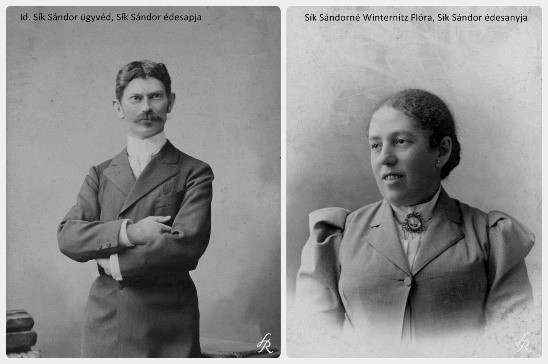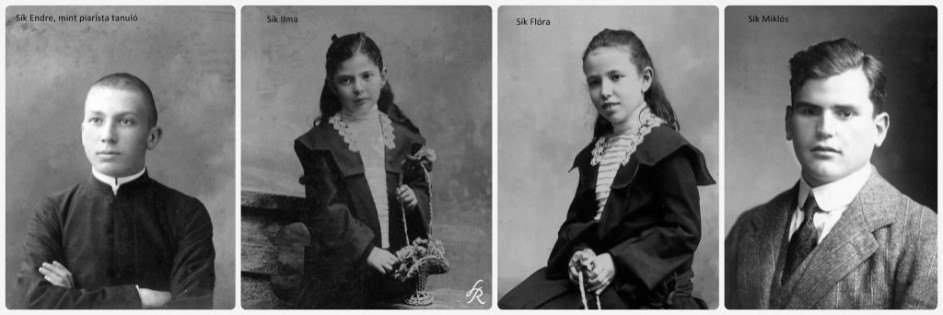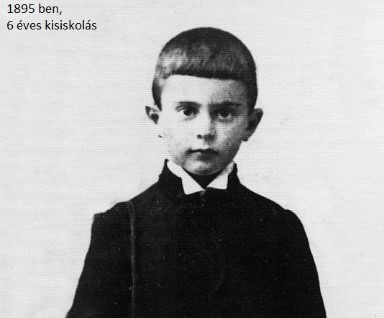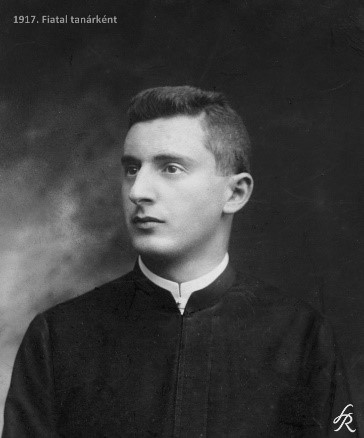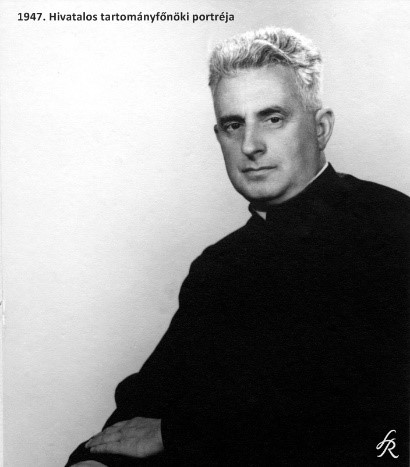His father was also named Sandor. His mother Flora Winternitz, was born Jewish and converted to Catholicism before the birth of their children. At the birth of Sandor, his 3 siblings died of scarlet fever after which four more siblings were born: Endre (Andrew), Miklos (Nicholas), Flora, and Ilma.
Sandor started elementary education in Grade 1 in a Budapest private school then continued Grades 2 -4 in Gödöllő.
After numerous suggestions from priest friends, his father enrolled him for 5 years at the Budapest Hungarian Piarist Gymnasium. The priestly atmosphere and caring teachers meant a lot to Sandor, so he committed himself to becoming a priest, opposing his parents who wanted him to be a lawyer. Having learned of this, he outright stated his intention toward priesthood. He did his noviciate at Vac. The early death of his father seriously impacted the family…to poverty and eventually, their home was sold. From Gödöllő he went to Kecskemét to continue his studies, there his catechism teacher confident and prefect was a decisive influence, guiding his path towards Sandor’s interest for literature and priesthood. He became a teacher…
He started his teaching Hungarian and Latin at the gymnasium at Vac as a home-room teacher. In addition, he also taught history and religion. At the end of the first year, at a young age, he was ordained. Sandor continued his own university education in theology in Hungarian, Greek and Latin..graduated in 1908. Continued to teach and in 1910 he received his teaching credentials. This was followed by his doctoral dissertation, and in 1929 he was assigned to Szeged University, Faculty of Literature. During the war, he resided in the Piarist House, Budapest. Eventually, the order moved to Kalocsa college where he and other priests continued their priestly duties.
For the next 16 years, from 1947, Dr. Sik became the Provincial General of the Hungarian Piarist Order. In 1961, he celebrated his golden anniversary mass. Even though that year his health started to fail, spiritually he remained alert but never complained! He died on September 28th, 1963.
What was Sandor Sik’s philosophy?: To be a better person…!
- “Scouting is an arrangement of one’s lifestyle form. It focuses on the complete, not the detail. The onus is not on what, but how…the principle, ideal, and the practical gathered from evangelical, nations past and practical individuals; specifically on how a scout can tie together and implement these… Scouting, with its many facets, is in summation a pedagogical movement that strives to prepare good citizens.”
- „The characteristics of scouting is responsible for serving others.”
- „The peculiarity of scouting is the spirit of brotherhood.”
DO THE GOOD!
Regardless, if others like it
Or not,
Regardless, if others see it
Or not,
Regardless, if it will be successful
Or not,
Do the good!
Do everything good,
That you can,
There, where you are,
As you able,
As grand as you can,
But always, let that be your program,
ALWAYS! /Sik Sandor/
Translated by: T. Lukacs Copyright! ©TL. 2021
Photo sources: www.legyresen.com, https://legyresen.com

